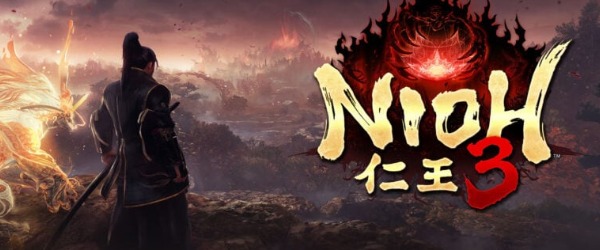
The Size of a Game's World is a Meaningless Measure of Quality - Article
by Taneli Palola , posted on 16 August 2016 / 11,122 ViewsThere's a certain trend that's been popping up in recent years in the video game industry, whereby a lot of the time a game's scale is pushed above everything else in importance. With these titles the size of the game's world becomes its main selling point and by extension its main draw, which leads to marketing that tries to equate size as being indicative of the overall quality of the game as a whole. This is a topic I've been thinking about for some time now, but I haven't really had the right opportunity to talk about until now, with the release of the hugely anticipated No Man's Sky providing an excellent launching point for just such a discussion.
Now, I have yet to actually play No Man's Sky myself, so what I say about the game is mostly conjecture and draws on the wider critical and fan reception the game has received thus far, but judging from these reviews No Man's Sky exhibits a lot of the problems prevalent in many of today's open world games. Namely, both the game itself and its marketing campaign placed great emphasis on the sheer scale of the game's world at the expense of almost everything else.
Often, the problem in games such as these is that while they may be absolutely massive, they end up feeling empty, sterile, or repetitive. No Man's Sky seems to fall victim to these issues to at least some extent, as the planets apparently tend to feel very similar to one another and the actions you perform on them is always more or less the same. In addition, as of right now, you can't actually meet up with other players in the game, so there's no possibility for interaction or co-operation with other players either. No Man's Sky seems like it provides a wonderful framework for a potentially amazing experience but simply doesn't have enough depth to realize said potential.

Of course, it isn't even close to being the first game to be plagued by such problems. There are dozens of examples of developers bragging about the massive worlds they're working on for their games, but more often than not these giant spaces end up feeling almost empty and highly repetitive. The Elder Scrolls is today known for featuring some of the most intricate and interesting worlds in the gaming medium, with Morrowind, Oblivion, and Skyrim all having vast game worlds that millions of gamers have fallen in love with. However, the series' second game, Daggerfall, took the idea of a massive world a bit too far.
Daggerfall boasted an absolutely enormous game world, spanning an area of 162,000 km2 and featuring over 750,000 NPCs to interact with. Compare this to Skyrim, which features a game world of 37 km2 and around 1,000 NPCs, and you may begin to see the problem. Because Daggerfall was such a massive game, a lot of it had to be randomly generated, such as the wilderness and many of the building interiors. As a result, massive chunks of the game ended up feeling stilted, artificial, and even lifeless despite the massive number of characters populating it. Later Elder Scrolls games feel much stronger in that sense, as the worlds are hand-crafted to a much greater degree, lending them a much stronger sense of uniqueness and personality.

There's nothing inherently wrong with procedural generation; it can be used very effectively, and has been countless times before. However, there is a limit to how far its effectiveness reaches, at least in my opinion. If too much of a game and its world is based on random chance it will inevitably end up feeling very shallow. This is why I feel that procedural generation actually works best in games that are either small in scale or only use it sparingly.
There are many other examples of games that trade unique and memorable content for sheer scale. For example, many of the Assassin's Creed games, especially the first one, feature highly repetitive quests and tasks due to the need to fill up a huge world with activities. For the most part the series serves as an example of one that generally manages to provide mostly interesting game worlds for players to traverse, but a lot of the side missions tend to devolve into pointless busy work that's clearly designed to pad out the game's length.

What this all really comes down to is that this trend of making the size of the game world the main draw and selling point of a video game at the expense of everything else ends up hurting the title's reputation in the long run. No Man's Sky is a hugely ambitious video game, but its main selling point ever since it was revealed is a crutch that looks to have ultimately held it back. It's an innovative idea to create a game with literally hundreds of millions of planets that players can visit, but if that is your only selling point and players will otherwise be repeating the exact same actions on all of them then the title will have very limited long-term appeal.
Ultimately, when it comes to creating open world games I believe that, while randomly generated elements have their place in them and can work very well when used judiciously, handcrafting as much of the world as possible will almost always result in a more engaging and interesting experience. Obviously it is not always practical to craft the whole game by hand, especially with such large-scale game series as The Elder Scrolls, Assassin's Creed, or No Man's Sky, but in these cases the trade-off needs to be carefully thought-through.

The Dark Souls series is a great example of a series that features large yet intricate worlds that feel both unique and memorable. It isn't nearly as large-scale as some of the other game series I've mentioned here, but because From Software goes to such great lengths to create a world brimming with detail and variety, it actually ends up feeling much larger than it truly is.
I would almost always rather choose a detailed, handcrafted and smaller game world over a larger one that has been created mostly or entirely from randomly generated elements. It doesn't matter how vast the game is if there isn't all that much to do in it, or if all you end up doing is the same thing over and over again. Simply put, bigger doesn't automatically mean better when it comes to video games.
More Articles
NMS has great potential if they use that formula in a Multiplayer setting but as is the game would have been better with 500 planets that look and feel better and are really designed, like everything is designed in a game like the witcher or skyrim, but I think the real potential in NMS will not be reached at launch but it could be possible with updates, dlc and so forth in the future, its nice that a game uses this huge scale so we might see a better realisation in the future.
I agree. NMS has massive potential if the developer just keeps supporting and expanding on the game's content, and considering its success, I see no reason why they wouldn't.
Even one planet designed with any sort of detail would have been difficult for a team. That's why space exploration isn't really possible to do and why Hello Games just randomized everything.
If I was NMS developer, I would have released a planet creation tool to the public and let people design their own planets and submit those for in game use.
I agree with this, but I'd add an addendum to it. It's meaningless past a certain point. Exploration based games need to have a world big enough to explore. If you confined a game like, say, Zelda to the size of something like a first person shooter, then the game would suffer noticeably. Once we're past that point, though, yes. The sheer size of a world doesn't do much for a game.
The planets aren't samey, and their emptiness isn't really a problem. They tend to be loaded with ruins, rock deposits, abandoned shelters, active bases, and a variety of different life forms which can vary wildly from planet to planet. Not to mention planets can have a variety of different atmospheric conditions at different intensities. The last system I went to had three very distinct planets in it.
One was hot, semi-arid, and filled with large lifeforms (including a species of large predator), and dominated by aggressive sentinels. At night the planet's conditions were perfectly fine, but in the daytime the heat ramped up to deadly levels.
The second one was covered in jungles and bluegreen grass, and had an absolutely gorgeous landscape. It was the first planet I've been to with a pristine atmosphere. Resources are everywhere, sentinels are laidback, and (unfortunately) wild life is practically non-existent.
The third planet was so horrific I named it Space Hell. Its ground was parched, cracked and molten. The planet's atmosphere was filled with deadly radioactive. Its oceans were blood red, and far more radioactive than the atmosphere itself, making them incredibly deadly to traverse. Plants were rare, and the surface was covered in various types of strangely shaped, jagged rocks. The planet didn't even have any inhabited bases, instead populated only by abandoned facilities overrun with a strange plant growth that appears to have killed its former occupant.
And yeah, I eventually grew bored with exploring and experiencing these planets, but I flew around this system for several hours, grinding out units along the way, before that happened. And now I've just jumped to a new system, which I will be exploring soon.
Really, I think it just comes down to what kinds of planets you happen to find, and what kind of experience you wanted. I wanted a space exploration game where I could lose myself in exploration, discovery and mining. And I've gotten that. It's got its issues (inventory management, the sentinels can be annoying, lack of civilization and NPCs to interact with) but they don't really have to do with scale. If anything, that's something that works in No Man Sky's favor.
I feel like this is sort of obvious. Anyway, most complaints I've read about No Man's Sky don't even have to do with the appeaeance of planets and creaturea, they are about other, unrelated things. No Man's Sky couldn't have worked in any other way, so it's odd how you chose to focus on it instead of other games. But on the other hand, you need to capitalize on the buzz around No Man's Sky to generate the clicks and cash flow, but alas, you are doing a disservice to the point you are trying to make by using a game that couldn't have worked in any other way as an example.
The problem I see there is that the developer made a game that could only work in that way. That's why I was critical of the obsession over creating such as massive game world, when in my opinion that is where most of the game's issues stem from. And I chose to focus on No Man's Sky because it is the most recent example of this trend, but I did mention other games in the article as well.
The concept of exploring space simply can't be achieved with handcrafted environments. What you are saying then is that they should just throw that concept out the window? I disagree that No Man's Sky's issues came from it's procedural generation. It came from what you can do in the game. As of now, you can't build bases, you can't play with friends, you can't build an "empire". That was what a lot of people wanted to, or at least to be able to do so. Those things weren't hindered by procedural generation. Case in point: Minecraft, where you can do all those things, despite it being procedurally generated.
The thing is, I believe a lot of the game's issues arise from it being so massive. The developer had to focus so much resources on making the world, that a lot of the other aspects had to be neglected. Hello Games is a small studio that took on a hugely ambitious task, which is probably a reason for a lot of the "missing" features. It's perfectly possible, and even likely that many of the issues will be fixed later through updates and patches.
Huge game worlds or universes with nothing in them are a drag. I've played a lot of games over the years that suffered from an emphasis on geography at the expense of gameplay. Eventually you realize that some sandboxes are the same old sand.
Highly disagree. Doesn't really help that the writer never evened played it. Who the hell wrote this?
Since this article isn't really just about one game, but concerns a more general trend, playing No Man's Sky isn't really that critical for it. It is simply a more recent example of something that has happened with numerous other games before. I simply used it because it is fresh in people's minds at the moment.
Thats why they are different words i'd say. Quality is the relative measure of all the things that compose the game, not just the one.
Size is neither a bad thing or a good thing. It depends on how its used.
I agree with most of this. NMS could have had "just" 10000 or 5000 planets and it would've been as good if not better than what it actually is.
I guess, but since they have less planets they could worry about other things, like adding some kind of combat or multiplayer or bases.
I dont know how game developing works though, so less planets still randomly generated might help in no way like you said. What I do know is huge games always end up boring people, which is a problem I feel with BotW.
But as Azuren said, I havent played the game. So bla bla bla :-P
Some games benefit ver well from randomnes like L4D series and diablo series.
This games problem isnt so much randomness but routines the feeling doing the same thing over again.
I completely agree. I don't want to claim that huge games with massive worlds can't be amazing. What I mostly don't like is the idea of putting the scale above everything else in a game. I genuinely believe that No Man's Sky is a game with a lot of untapped potential, but as it is right now I can't help but feel that too much emphasis has been placed on the game's sheer size at the expense of variety in its gameplay.
I've not seen anyone complaining about No Man's Sky discussing bouncing around when gravity is different (my friend was doing this) or landing on a planet with extremely high Sentinel presence (my friend had to get the hell off of there fast), yet "all the worlds are exactly the same" is the main complaint. With how big the game, an exploration focused game, is, I just find it weird people are acting like they've seen it all in under 2 weeks.
But if there's nothing to really "explore" then what's the point? He's not saying huge worlds are bad, he's just saying huge worlds with nothing to do in them and all look and feel mostly the same are bad. And I agree with him.






















 Essay Pro
Essay Pro